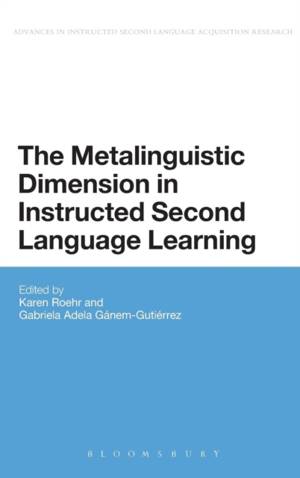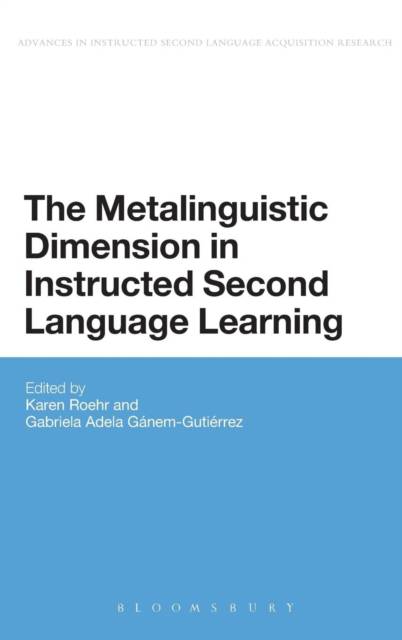
Bedankt voor het vertrouwen het afgelopen jaar! Om jou te bedanken bieden we GRATIS verzending (in België) aan op alles gedurende de hele maand januari.
- Afhalen na 1 uur in een winkel met voorraad
- Gratis thuislevering in België vanaf € 30
- Ruim aanbod met 7 miljoen producten
Bedankt voor het vertrouwen het afgelopen jaar! Om jou te bedanken bieden we GRATIS verzending (in België) aan op alles gedurende de hele maand januari.
- Afhalen na 1 uur in een winkel met voorraad
- Gratis thuislevering in België vanaf € 30
- Ruim aanbod met 7 miljoen producten
Zoeken
The Metalinguistic Dimension in Instructed Second Language Learning
€ 373,45
+ 746 punten
Omschrijving
The metalinguistic dimension refers to the way in which learners bring to bear knowledge about language into their learning of a second language, the "L2". This book brings together new research on the metalinguistic dimension, given its increasing importance in the study of L2 acquisition.
In applied linguistics it is widely accepted that L2 learners develop and use knowledge about language when engaging with the challenging task of acquiring a new language; this applies to both children and adults. It is definitions of the metalinguistic dimension that vary, and findings regarding its role in L2 learning are not necessarily homogenous or compatible. The scope exists for further, empirical, detailed research. This book explores the nature, development and role of the metalinguistic dimension and will be essential reading for all SLA scholars and those working in language and education.
In applied linguistics it is widely accepted that L2 learners develop and use knowledge about language when engaging with the challenging task of acquiring a new language; this applies to both children and adults. It is definitions of the metalinguistic dimension that vary, and findings regarding its role in L2 learning are not necessarily homogenous or compatible. The scope exists for further, empirical, detailed research. This book explores the nature, development and role of the metalinguistic dimension and will be essential reading for all SLA scholars and those working in language and education.
Specificaties
Betrokkenen
- Uitgeverij:
Inhoud
- Aantal bladzijden:
- 272
- Taal:
- Engels
- Reeks:
- Reeksnummer:
- nr. 1
Eigenschappen
- Productcode (EAN):
- 9781441160898
- Verschijningsdatum:
- 5/09/2013
- Uitvoering:
- Hardcover
- Formaat:
- Genaaid
- Afmetingen:
- 157 mm x 236 mm
- Gewicht:
- 521 g

Alleen bij Standaard Boekhandel
+ 746 punten op je klantenkaart van Standaard Boekhandel
Beoordelingen
We publiceren alleen reviews die voldoen aan de voorwaarden voor reviews. Bekijk onze voorwaarden voor reviews.








